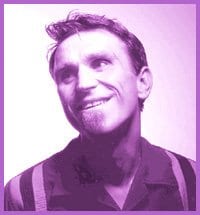There was a man in my hometown, Doug, who used to own the car- wash. Like everyone else in town, he was a drinking buddy of my father. I remember when he got drunk he would wave his arms around and start offering all his friends’ teenage sons jobs soaping up cars and hosing them down.
Whenever Doug did that, the adults in the room would quickly shuffle him into his truck and remind him to stick to the back roads on his way home. Then they would come back into the house, pour themselves another drink and joke about how he was a great guy, but that they wouldn’t let him alone with their sons for five minutes.
When I was home this summer, my mom and I drove by the old car-wash and I asked her whatever happened to Doug. She was amazed that I hadn’t heard all about it on the news.
It turns out that cars weren’t the only thing getting hosed down at Doug’s place. He had been charged with having sex with hundreds of teenage boys and then died under mysterious circumstances. “It was such a shock to everyone.”
“Oh, good God. I knew he was doing that when I was 12. I think you told me.”
“Me? I had no idea.”
Like a town full of alien abductees, she and everyone else with an ear for gossip in town during those years had apparently developed a major case of suppressed memory syndrome.
When I was a kid, I used to watched the fish swimming around my aquarium like other kids watched cartoons. I would cry and throw a tantrum if my father even tried to switch off one of Jacques Cousteau’s undersea adventures. A few years ago, I took a first-year ocean ecology course. Listening to me, you would think I was a certified marine biologist who spent my days riding around in ships measuring whale fins and talking to all my undersea friends. Given that, I feel more than qualified to explain how an oyster forms a pearl.
Like a suppressed memory, a pearl starts when something that isn’t supposed to be there gets under the oyster’s shell. The only difference is that a suppressed memory might involve a child watching her father get sliced to bits in a freak lawn mower accident and a pearl starts with a tiny irritant, maybe a little piece of sand.
Because oysters have no fingers to scratch or flick away whatever is annoying them, they secrete a coating that surrounds the invading material to stop the irritation. Over time, that coating builds up, until eventually the oyster’s luck runs out and it ends up being canned and flown over to sit on a shelf in a deli in Tokyo, and the pearl gets sold to a woman in Kerrisdale. Possibly because she suspects that her husband is having an affair and he wants to throw her off the scent.
My theory is that in order to avoid feeling immensely guilty for letting the “Doug car wash scandal,” go on for so many years, the town’s residents, including my mother, have all wrapped that little piece of their memories up and stuffed it under the floorboards of their brains.
Listening to my mother’s convincing denial of ever even being in the same room as “That Monster,” made me realize that I had been doing the same thing with all the terrible liver news I had been getting for the past year.
I would go to the doctor to find out that my liver counts were through the roof and the Hep B virus population in my blood was too high for the computer at St Paul’s to count. I would smile, listen and immediately forget everything I had been told. I’d be woken up in the middle of the night with throbbing pains in my side and nap the days away (the way only someone with a major organ eroding inside their belly can) and then when my mom called to ask how I was I would say, “Great. I haven’t been playing much tennis though. Been really busy.”
A few months ago, a PWA whose liver is also flicking like a light bulb about to blow forwarded me an e-mail announcing a study of a new HIV drug. According to the e-mail, the drug, either by coincidence or design, was doing miracles for people with damaged liver and active Hep B.
My brainless stupor lifted. I got on the phone and made an appointment with my lovely and talented GP. When he walked into my cubicle I waved the paper around and said, “I want this drug.”
Since that day my life has been like an infomercial for some nameless pharmaceutical corporation. In 12 weeks, all the numbers that doctors used to point at and say, “That’s a worry” and “We’ll have to keep an eye on those” have returned to something approaching normal. I have more energy than I’ve had in years and there are less Hep B viruses left in my body than there are homeless people left in Manhattan.
The pearl of wisdom I’ve learned from all this is simple. If you have a problem that you can deal with, then get busy. If you have a problem you can’t deal with, tuck it away. Then all you have to worry about is knowing where to find it, when the time is right.

 Why you can trust Xtra
Why you can trust Xtra


